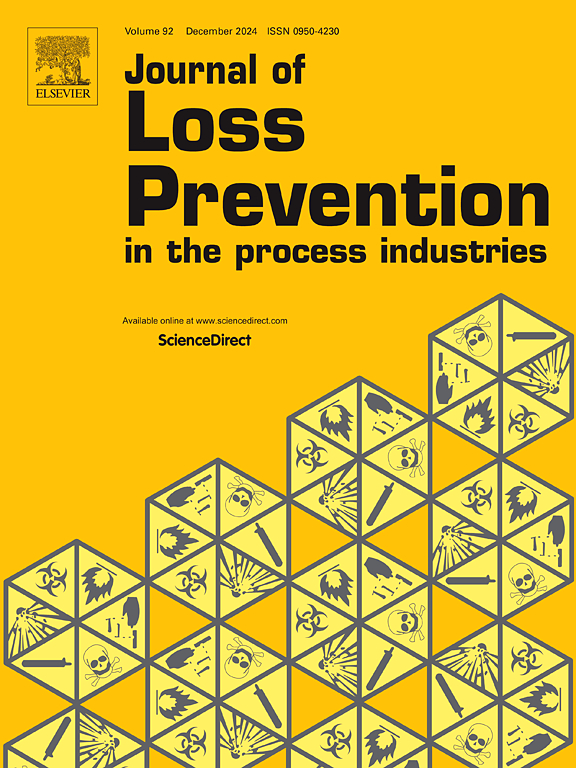加氢站事故综合分析:揭示影响因素
IF 4.2
3区 工程技术
Q2 ENGINEERING, CHEMICAL
Journal of Loss Prevention in The Process Industries
Pub Date : 2025-05-29
DOI:10.1016/j.jlp.2025.105698
引用次数: 0
摘要
安全的设计、操作和维护对于防止加氢站事故和确保可靠的氢供应至关重要。从这个意义上说,现有的运行数据可以作为一种学习工具来识别和解决弱点,为更安全、更高效的氢未来铺平道路。通过分析国际事件数据库的数据,本研究旨在找出影响加氢站事件的因素。制定了一种新的客观分析方案来检查211个事件。通过这种分析,可以建立一份事件促成因素和子因素的全面清单。这项研究的一个关键成果是创建了量化参数,突出了不同因素对加氢站运营实践的影响。该研究确定了导致事件的关键过程和活动,例如那些在设计阶段或与人类表现相关的过程和活动。所提供的知识有助于制定更强大的安全协议和操作程序,最终有助于建立更安全、更可靠的氢基础设施。本文章由计算机程序翻译,如有差异,请以英文原文为准。
A comprehensive analysis of hydrogen refuelling station incidents: Unveiling contributing factors
Safe design, operation, and maintenance are paramount for preventing accidents in hydrogen refuelling stations and ensuring a reliable hydrogen supply. In this sense, existing operational data can be used as a learning tool to identify and address weaknesses, paving the way for a safer and more efficient hydrogen future. By analysing data from international event databases, this study aims to identify the contributing factors influencing events at hydrogen refuelling stations. A novel objective analysis protocol is formulated to examine 211 events. This analysis has permitted the establishment of a comprehensive inventory of incident contributing factors and sub-factors. A key outcome of this research is the creation of quantitative parameters that highlight the impact of the different contributing factors on hydrogen refuelling stations operational practices. The study identifies key processes and activities that contribute to incidents, such as those in the design phase or related to human performance. The knowledge provided empowers the development of more robust safety protocols and operational procedures, ultimately contributing to a safer and more reliable hydrogen infrastructure.
求助全文
通过发布文献求助,成功后即可免费获取论文全文。
去求助
来源期刊
CiteScore
7.20
自引率
14.30%
发文量
226
审稿时长
52 days
期刊介绍:
The broad scope of the journal is process safety. Process safety is defined as the prevention and mitigation of process-related injuries and damage arising from process incidents involving fire, explosion and toxic release. Such undesired events occur in the process industries during the use, storage, manufacture, handling, and transportation of highly hazardous chemicals.

 求助内容:
求助内容: 应助结果提醒方式:
应助结果提醒方式:


